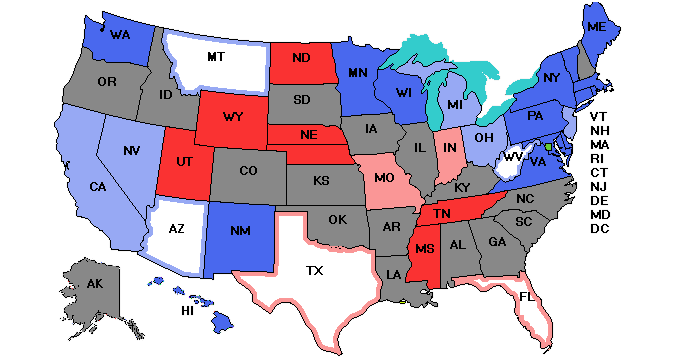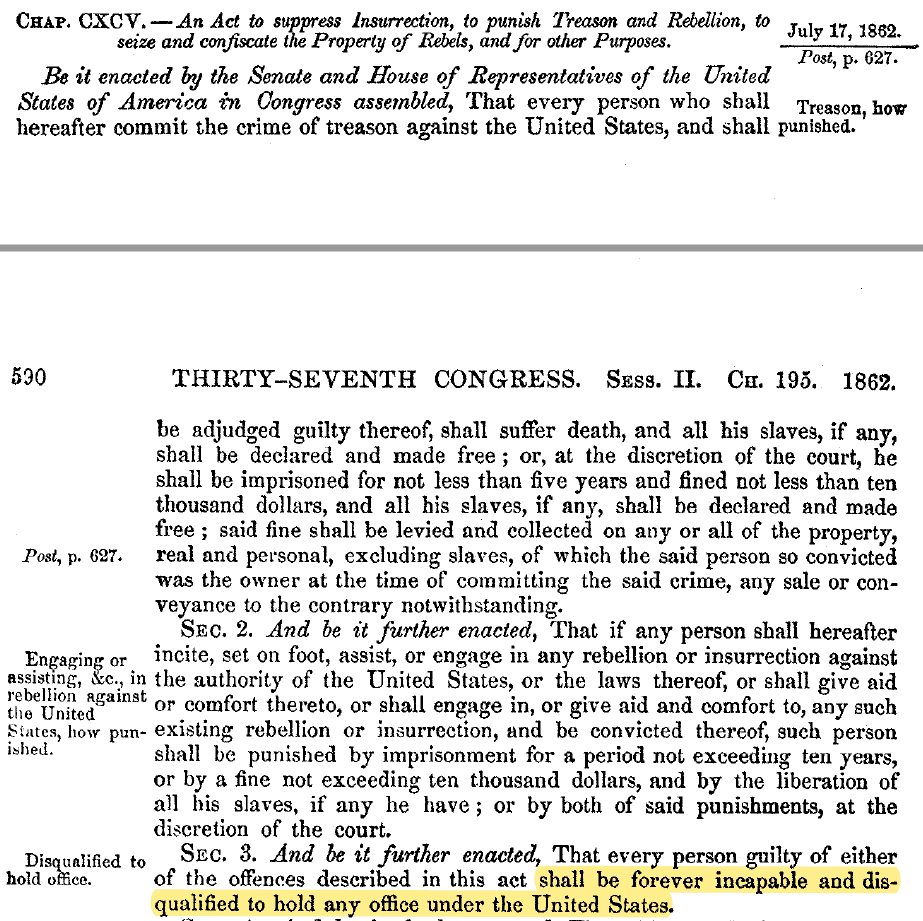Statutes at Large reports that the bill was "Approved, July 17, 1862." 37 Stat. 592. President Lincoln signed this bill into law, along with an explanatory act.
37 Stat. 627, also dated July 17, 1862.
If the members of the 37th Congress and Lincoln understood the phrase "office . . . under the United States" to include elected federal positions, then the statute would impose additional qualifications on elected federal positions. And, according to Hamilton in
Federalist No. 60—and the Supreme Court's not-yet-issued decision in
Powell—such a statute would be unconstitutional.
What about the Fourteenth Amendment? Doesn't this 1862 statute's predicate offense track Section 3? Yes, there are similarities between the language of the statute and Section 3. And we address those similarities later in this post. But this 1862 bill was enacted
before the 1868 ratification of the Fourteenth Amendment. Therefore, Congress could not have enacted this law based on its authority under Section 5 of the Fourteenth Amendment. Congress would have to rely on the Constitution of 1788. And, as explained, the original Constitution did not permit Congress to add additional qualifications for elected positions.










